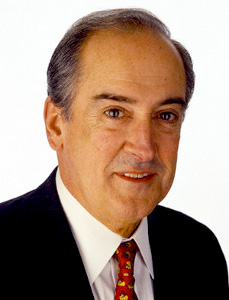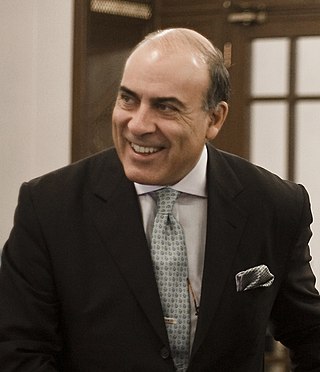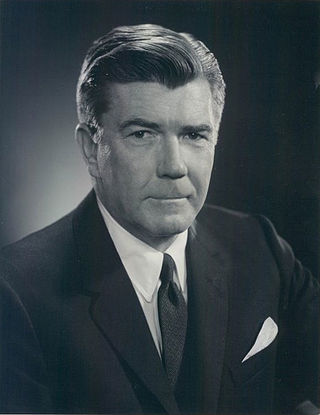Related Research Articles

John Sculley III is an American businessman,entrepreneur and investor in high-tech startups. Sculley was vice-president (1970–1977) and president of PepsiCo (1977–1983),until he became chief executive officer (CEO) of Apple Inc. on April 8,1983,a position he held until leaving in 1993. In May 1987,Sculley was named Silicon Valley's top-paid executive,with an annual salary of US$10.2 million.

The Foundation for Individual Rights and Expression (FIRE),formerly named the Foundation for Individual Rights in Education,is a 501(c)(3) non-profit civil liberties group founded in 1999 with the mission of protecting freedom of speech on college campuses in the United States. FIRE changed its named in June 2022,when it broadened its focus from colleges to freedom of speech throughout American society.

University of Phoenix (UoPX) is a privately owned for-profit university headquartered in Phoenix,Arizona. Founded in 1976,the university confers certificates and degrees at the certificate,associate,bachelor's,master's,and doctoral degree levels. It is institutionally accredited by the Higher Learning Commission and has an open enrollment admissions policy for many undergraduate programs. The school is owned by Apollo Global Management and Vistria Group,two US private-equity firms,but is in the process of being acquired by Four Three Education,a non-profit organization affiliated with the University of Idaho.

Roberto Críspulo Goizueta Cantera was a Cuban-born American business executive who served as the chairman,president,and Chief Executive Officer (CEO) of The Coca-Cola Company from August 1980 until his death in October 1997.

The Coca-Cola Company is an American multinational corporation founded in 1892. It produces Coca-Cola. The drink industry company also manufactures,sells,and markets other non-alcoholic beverage concentrates and syrups,and alcoholic beverages. The company's stock is listed on the NYSE and is part of the DJIA and the S&P 500 and S&P 100 indexes.
Douglas Ivester is an American businessman. He served as the chairman and chief executive officer of The Coca-Cola Company from 1997 to 2000.
The Art Institutes (AI) were a private for-profit system of art schools in the United States.

SunTrust Banks,Inc. was an American bank holding company with SunTrust Bank as its largest subsidiary and assets of US$199 billion as of March 31,2018. The bank's most direct corporate parent was established in 1891 in Atlanta,where it was headquartered.

Bayes Business School,formerly known as Cass Business School,is the business school of the City,University of London,located in St Luke's,just to the north of the City of London. It was established in 1966,and it is consistently ranked as one of the leading business schools in the United Kingdom.

National American University (NAU) is a private for-profit online university with an additional location at Ellsworth Air Force Base. It is owned by National American University Holdings,Inc. (NAUH). In 2018,NAU acquired the assets of Henley-Putnam University and now offers strategic security programs. Most of NAU's academic programs are on the 11-week quarter system and have monthly starts. The school is accredited by the Higher Learning Commission.
Argosy University was a system of for-profit colleges owned by Dream Center Education Holdings (DCEH),LLC and Education Management Corporation.
Gary Fayard is a former chief financial officer and executive vice president of The Coca-Cola Company. He was with the company 20 years,15 as CFO. He is a 1975 graduate of the University of Alabama,where he was a brother of the Sigma Nu fraternity.
Gary Lewis Crittenden is an American financial manager. He is currently an executive director of HGGC,where he also previously served as CEO and chairman. He is also the former chairman of Citi Holdings. He has served as chairman of the boards of Citadel,Power Holdings,and iQor;as lead independent director of Pluralsight;and has served on the boards of Extra Space Storage,Staples Inc.,Ryerson,Inc.,TJX Companies,and Utah Capital Investment Corp. From 2000 to 2007,Crittenden was executive vice president and chief financial officer (CFO) of American Express,and from March 2007 to March 2009,he was the chief financial officer of Citigroup.
Tom Long is the son of Richard G. Long and BettyLayne Hollinshead Long,was President and Chief Executive Officer of Miller Brewing Company and later CEO of MillerCoors,one of the world's largest brewers. He is now managing partner of Bridger Growth Partners in Atlanta,GA.
Frank Joseph Biondi Jr. was an American businessman and entertainment executive,who held leadership roles at Viacom,Universal Pictures,and HBO.

Ahmet Muhtar Kent is a Turkish-American business executive. He was the chairman and chief executive officer (CEO) of The Coca-Cola Company. He became CEO in 2008,and chairman in 2009.

David Charles Novak is an American businessman,author and philanthropist. He is the founder and CEO of David Novak Leadership,and co-founder and former CEO of YUM! Brands Inc.

John Paul Austin was Chairman,President and CEO of The Coca-Cola Company. From 1962 to 1981 Austin oversaw the growth of the company from $567 million in sales to a $5.9 billion global force.
Samuel Attah-Mensah,also known as 'Sammens',is a Ghanaian media personality,business man and lecturer. He is the managing director of award-winning Accra-based English speaking radio station Citi FM. He is also the Vice President of Ghana Independent Broadcasters Association (GIBA). He is a Fellow of the third class of the African Leadership Initiative-West Africa and a member of the Aspen Global Leadership Network.

Alexander Benedict Cummings Jr. is a Liberian politician,businessman and philanthropist. He is the Standard Bearer of Liberia's Alternative National Congress.
References
- 1 2 3 4 5 Needle, Todd (9 March 2011). "Tim Slottow: The man on top of the bottom line". The Michigan Daily. University of Michigan. Retrieved 4 January 2016.
- 1 2 3 "Timothy Slottow, President, University of Phoenix". www.phoenix.edu. Retrieved 2016-01-04.
- 1 2 Freed, Ben (1 April 2014). "University of Michigan CFO Tim Slottow leaving to lead University of Phoenix". Michigan Live. MLive Media Group. Retrieved 4 January 2016.
- ↑ "University of Phoenix names Tim Slottow as new president". Phoenix Business Journal. 1 April 2014. Retrieved 4 January 2016.
- ↑ Davidson, Jeremy (12 April 2006). "Coke's Return to U. Michigan Campus Draws Mixed Opinions". The New York Times. ISSN 0362-4331 . Retrieved 4 January 2016.
- ↑ "Management Team". Apollo. Apollo Education Group. Retrieved 4 January 2016.
- ↑ Blumenstyk, Goldie (March 7, 2016). "Leader of U. of Phoenix Says It's 'Heads-Down Focused' on Improvements for Students". www.chronicle.com. Retrieved 2022-07-15.
- ↑ "PLEASE READ: An important message". goto.phoenix.edu. Retrieved 2022-07-15.
- ↑ "Higher Education Blogs | Blog U". www.insidehighered.com. Retrieved 2016-02-03.
- ↑ "Essay by the University of Phoenix's new president on quality at the for-profit | Inside Higher Ed". www.insidehighered.com. Retrieved 2016-02-03.
- ↑ "Essay says data in White House Scorecard is lacking | Inside Higher Ed". www.insidehighered.com. Retrieved 2016-02-03.
- ↑ "Hawaiʻi's Top 250 Companies 2021". Hawaii Business Magazine. 2021-10-04. Retrieved 2022-07-15.
- ↑ "News archive".